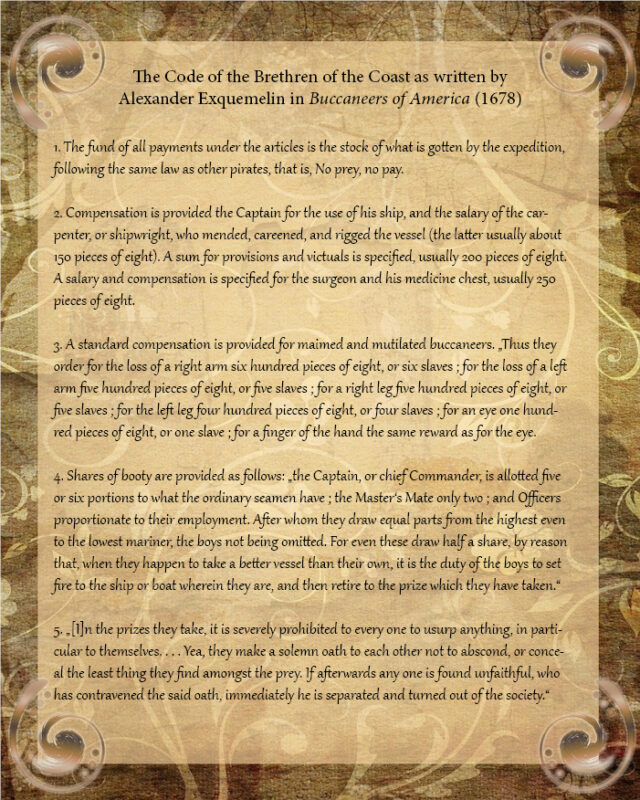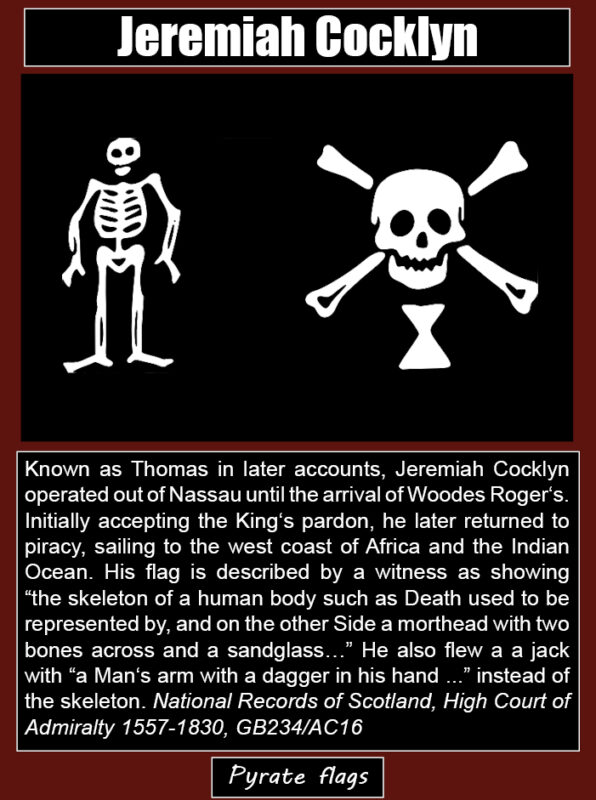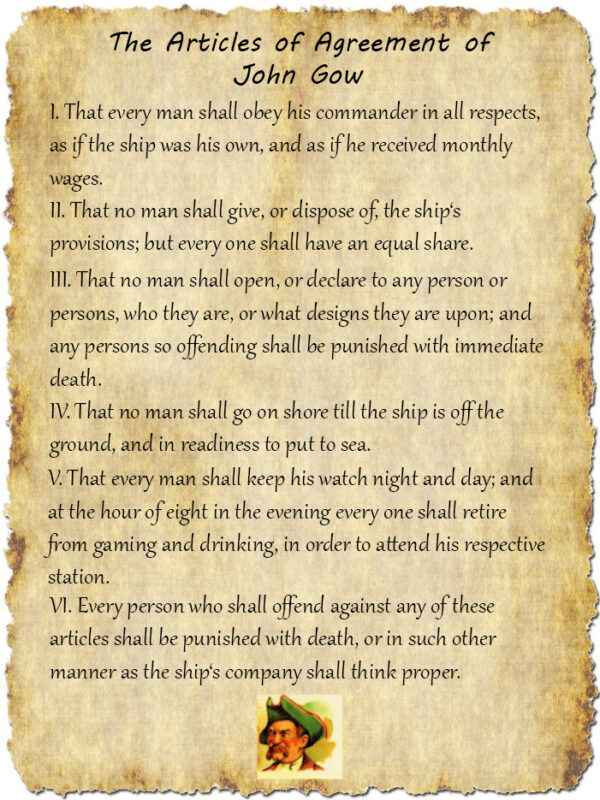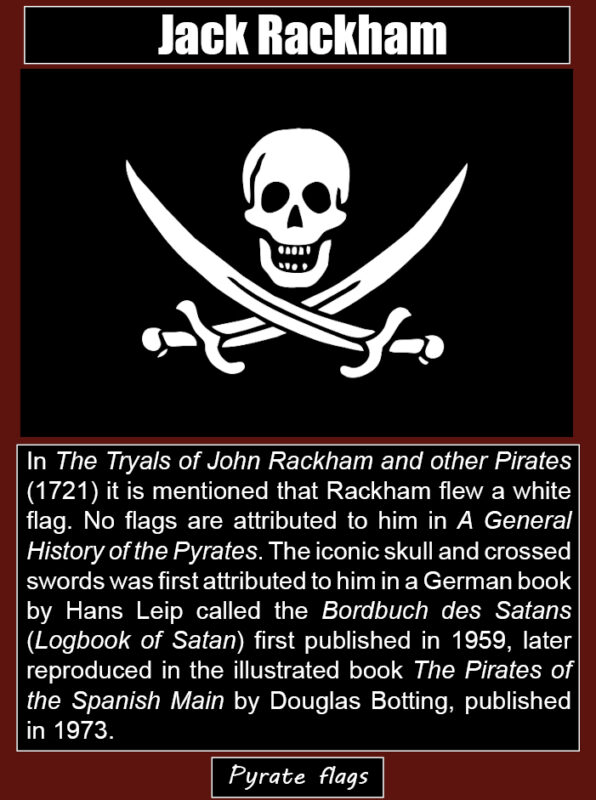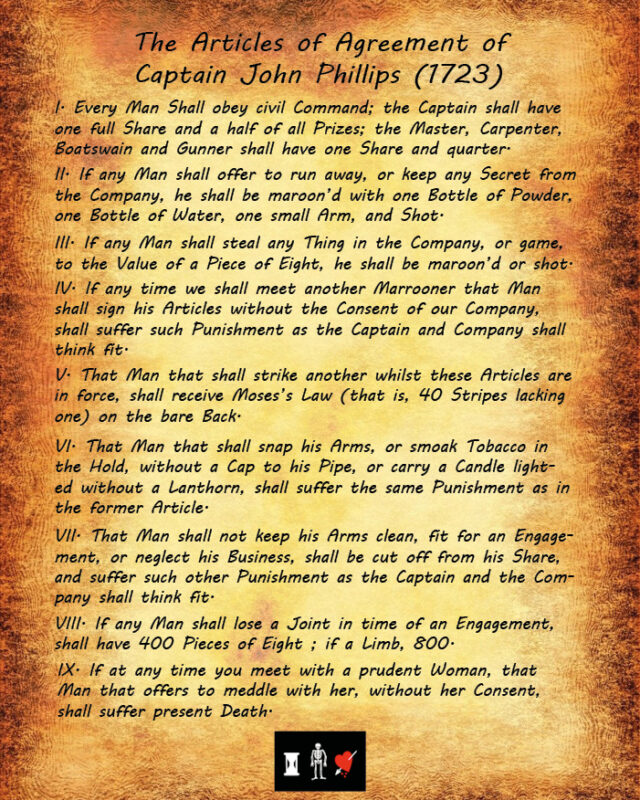Although there are no surviving Articles of Agreement put together by the buccaneers of the 17th century, although Alexander Exquemelin wrote in his book The Buccaneers of America (1678) something about them. He wrote about them about more in general terms, but they could be construed as a more specific code. Because Exquemelin sailed as Henry Morgan’s physician it is likely that these were very similar to Henry Morgan’s actual articles. Exquemelin explained that the buccaneers chose to: “Agree on certain articles, which are put in writing, by way of bond or obligation, which every one is bound to observe, and all of them, or the chief, set their hands to it.”
